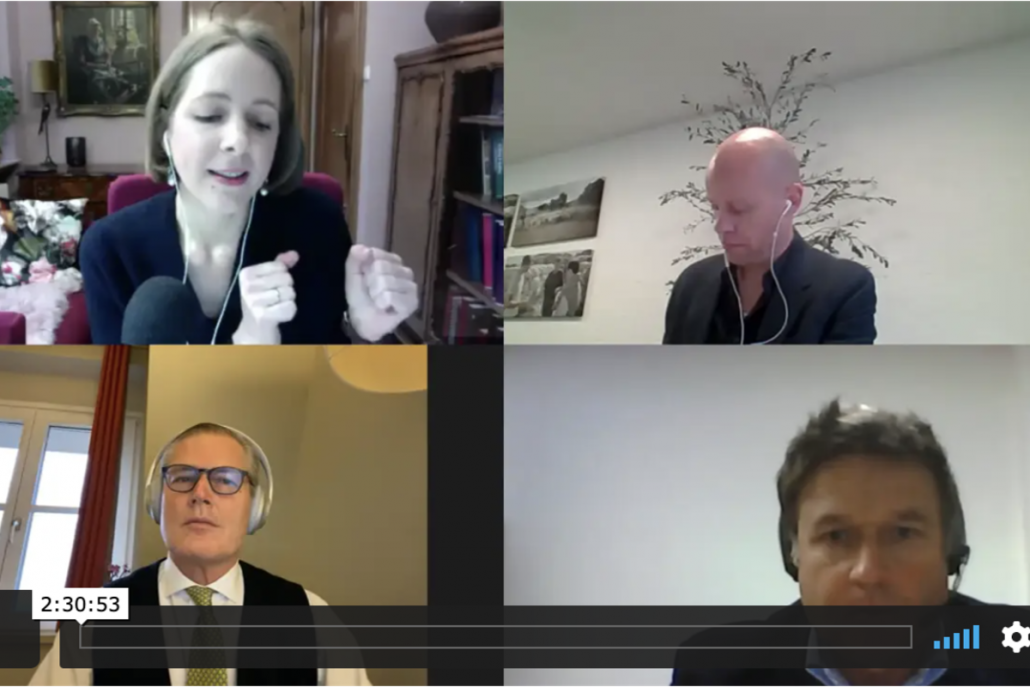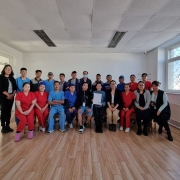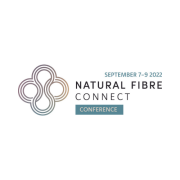Wool Connect Conference Report 2020
More Consensus Needed – Wool Connect Online Conference Concludes
On 06-08 October 2020, the Wool Connect Online Grower conference took place with over 750 people watching either live or via on-demand recordings. Over the course of the three days of the conference, a total of 32 speakers presented during 2-hour sessions that included time for questions and an online debate via the available chat function. Attendees signed up from all major wool growing countries including Australia, Argentina, New Zealand, South Africa, Uruguay, the UK, and the USA.
Each day over 220 attendees took part in the event live. Some wool growers from the Falkland Islands, the USA, Argentina, and Uruguay even attended the event live despite the conference taking place during the middle of the night local time. For those not able to attend the conference, recordings were made available afterward in English and Spanish and are still available to view via the wool connect online platform to everyone purchasing a ticket.
Speakers from the entire wool supply chain and related stakeholder groups held 10-minute long presentations. The content focused on defining future market requirements and opportunities for wool in relation to sustainability, animal welfare, and traceability.
The elephants in the room
During his opening remarks, The Schneider Group CEO, Giovanni Schneider, pointed out that he became concerned with sustainability within our industry at a very young age and that he “was excited when last year 250 companies decided to sign the Fashion Pact in Biarritz (France), committing on three very important environmental goals by 2030: the first one is stopping global warming, second restoring biodiversity and the third one is protecting the oceans”. He also felt very pleased with the quality of the content that the “amazing speakers” gathered for the conference would bring forward and “honoured” by the number of people joining Wool Connect. Finally Giovanni anticipated that it would be a controversial conference since it would address “the two big elephants in the room: sustainability and animal welfare”.
Acknowledge what is
Overall, the goal of the conference was to create an unfiltered dialogue between retailers, processors, and other industry stakeholders sparking much-needed consensus. Acknowledging and openly discussing discrepancies between wool supply and demand was the starting point for this first edition of Wool Connect. Main discussions revolved around topics such as the increasing requirements for non-mulesed wool, sustainable production, sequestering carbon emissions, biodiversity, certifications, and traceability.
Certification overload
The point raised by Marta Maniero from Marzotto exposed the high number of certification schemes available in the market and the complexity this brings for growers and processors alike. The number of times this issue was raised by speakers and discussed among attendees initiated further discussions among certification scheme owners after the conference evidences the need to find a joint and simple solution to the certification jungle. Point taken and progress will be revised in Wool Connect 2021.
Mulesing is not a binary discussion
On the topic of mulesing the conference highlighted the increasing demand for non-mulesed wool due to brand pledges to phase out mulesing by a certain date in the near future. Heinz Zeller, Principal Sustainability at Hugo Boss pleaded for a “stronger move towards the production of mulesing-free wool to reach a better acceptance of wool among consumers”.
The key take away was that the mulesing debate is not a binary one. By hearing the voices of brands like Ermenegildo Zegna, Kering, Hugo Boss, Muji and Armedangels, wool producers as well as animal welfare organisations such as Four Paws and HSI, it became clear that a new and decisive approach is needed. A sustainable solution for all parties involved can only be found through dialogue, mutual understanding as well as consensus building among all stakeholders. Hopefully, the fact that for the first time growers and animal welfare organisations have shared the same (virtual) room is already a big step in the right direction.
An increasing number of issues
Retailers presenting their sustainability strategies indicated that mulesing is not the only concern for them when it comes to wool. Other requirements towards wool growers have been expressed such as focusing on sustainable productions, carbon emission, and biodiversity. The increase in complexity that retailers face as consumer expectations shift is nothing more than a multiplicity of opportunities to generate value for wool disguised as challenges. The commitment and passion for wool expressed by most speakers shouldn’t go unnoticed nor given for granted.
Storytelling is key
Last but not least the importance of communications and storytelling repeatedly came up as one of the opportunities for the industry to tell the beautiful stories wool has to offer in a more proactive way. Michel Mastio, Segment Director Hosiery and Circular Knitting Yarns at Südwolle Group even described their business as “selling services and stories, not only yarns”. Furthermore, comments by speakers and attendees included the need to better educate and communicate about the many good industry practices and high animal welfare standards.
Stop the blame-game
Within the heated discussions during and after the conference attendees felt the urge to blame certain industry bodies or industry stakeholders as to why and how we got to where we are today particularly on the mulesing debate. However, Wool Connect is not about identifying the culprit as we all got to where we are together. The wool industry is an interconnected system that reacts and depends on each other. Wool Connect wants to put the focus on the future by acknowledging the challenges, creating dialogue, and building consensus on the best way forward for everyone involved.
It’s all about the money – or is it?
Another question raised several times among attendees within the discussion was about who will pay for all the certifications and extra work required to meet retail demands? What is the right perspective on this? Are we talking about costs or about creating value? One takeaway of the conference was that sustainability needs to be easy and comprehensive for all involved and create tangible value. Whatever solution moves away from these principles is unlikely to succeed in the market. Thomas Moe, Senior Product Director at Salewa, described this as “green business, where everybody in the supply chain needs to earn money”.
This was also a topic addressed by speaker Gunter Pauli who said that running businesses on efficiency and cost-cutting is no longer going to work. Businesses of the 21 century need to be able to sustain themselves which means taking care of people, the planet, and profit. This is easier said than done but also indicates that market economics as we know it can no longer continue. Covid-19 has been a magnifying glass on this issue over the past months and new concepts such as the doughnut economy and new tax systems are being developed under a higher stage of modern capitalism.
Next edition in 2021
Wool Connect was a spontaneous event that was born out of the idea to organise a small internal meeting for Authentico registered wool growers only. The idea, however, morphed quickly into a global conference available to all wool growers. The short time frame taken to organise the event posed some limitations to the content. The goal of this first Wool Connect edition was to clearly call out and acknowledge the existing challenges within the wool industry. The concluding message given by Willy Gallia, Chief Sustainability Officer of the Schneider Group, and team lead of the event, was the importance of finding consensus among all wool supply chain actors as this could only achieve progress and value for all. Creating more opportunities for dialogue and consensus-building will be the goal for the next Wool Connect conference in 2021.
We thank all sponsors supporting the Wool Connect conference. In particular, we thank Control Union for supporting the event as Gold sponsor.


 The Schneider Group
The Schneider Group
 charistopher-rusev-UV5aY8N73dA-unsplash
charistopher-rusev-UV5aY8N73dA-unsplash kate-hliznitsova-0ejPucrlxFs-unsplash
kate-hliznitsova-0ejPucrlxFs-unsplash

 The Schneider Group
The Schneider Group The Schneider Group
The Schneider Group